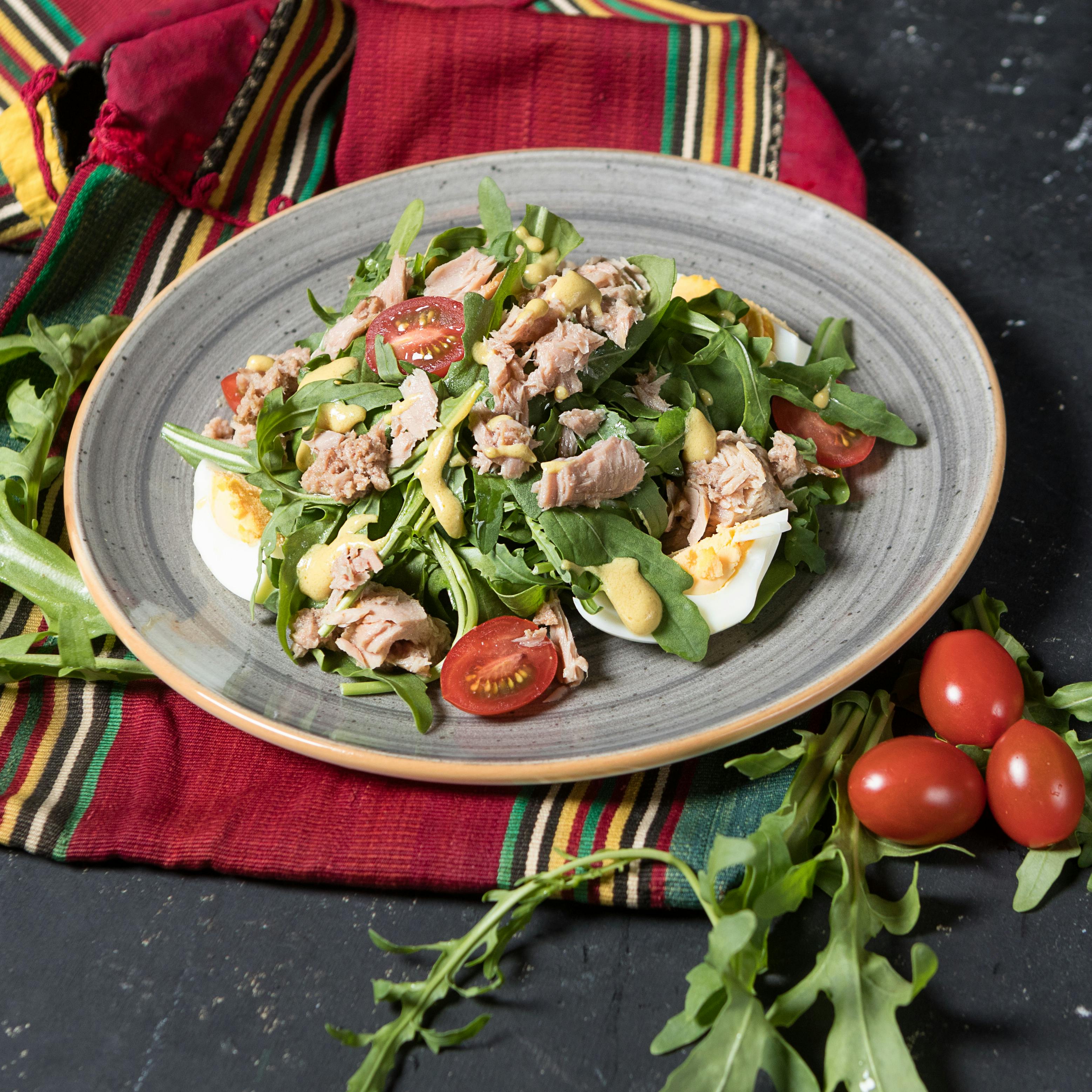Smart Ways to Embrace a High Protein Mediterranean Diet in 2025

Smart Ways to Embrace a High Protein Mediterranean Diet in 2025
The Mediterranean diet has become a cornerstone of healthy eating, known for its diverse flavors, emphasis on fresh ingredients, and benefits for heart health and longevity. In 2025, adopting a high protein Mediterranean diet can further enhance the positive attributes of this culinary lifestyle. By prioritizing protein sources, healthy fats, and nutrient-dense foods, individuals can enjoy a variety of meals that provide the energy they need while supporting their overall health. This article aims to explore the essentials of a high protein Mediterranean meal plan, outline the various protein sources available, and provide practical tips for incorporating this diet into daily life.
Key takeaways will include effective meal prep ideas, healthy recipes featuring lean meats and fish, and how to maximize the benefits of traditional Mediterranean foods. With a focus on meal diversity and seasonal produce, this diet promotes sustainability and wholesome eating habits. Let’s dive into the exciting ways to embrace this fulfilling lifestyle.
Understanding the Core Principles of a High Protein Mediterranean Diet
Building on the foundation of the Mediterranean diet principles, embracing a high protein diet requires an understanding of its core elements. This includes recognizing the essential food groups that should be incorporated into daily meals. A balanced Mediterranean-style eating plan focuses heavily on plant-based proteins, lean meats, fish, legumes, and healthy fats, particularly olive oil. Integrating these foods not only supports high protein intake but also enhances nutritional balance.
Key Food Groups in the Mediterranean Diet
The Mediterranean diet is characterized by its emphasis on whole foods and minimal processed ingredients. The key food groups include:
- Legumes and lentils provide essential protein and dietary fiber.
- Fish recipes often feature omega-3 sources that are anti-inflammatory and beneficial for heart health.
- Lean meats, particularly poultry, sausage, and pork, should be consumed in moderation to maintain a balanced protein intake.
- Nuts and seeds serve as healthy snacks packed with protein and healthy fats.
- Whole grains, such as quinoa, brown rice, and barley, offer complex carbohydrates and fiber.
- Fruits and vegetables form the foundation of meals, providing vitamins, minerals, and hydration.
The Importance of High Protein Sources
Protein is vital for muscle repair, hormonal balance, and overall energy levels. In a high protein Mediterranean diet, the best protein sources come from both animal and plant origins:
- Lean meat options like chicken and turkey are excellent for protein intake.
- Fish such as salmon, sardines, and mackerel are not only high in protein but also rich in omega-3 fatty acids, promoting heart health.
- Legumes like chickpeas, lentils, and black beans provide a plant-based protein alternative with a rich array of vitamins.
- Quinoa is a power-packed grain that includes all essential amino acids, making it a complete protein.
- Greek yogurt and low-fat dairy products, when included, enhance protein intake while also offering calcium.
Maximizing Health with Healthy Fats
Healthy fats are integral to the Mediterranean diet, particularly those sourced from olive oil. Known for its heart-healthy benefits, olive oil enhances flavor while providing essential fatty acids. Including nuts, such as almonds, walnuts, and cashews, also contributes to dietary fats that support brain health and aid in nutrient absorption. Incorporating these fats into meals can facilitate a superior energy balance and promote weight management.
Effective Meal Planning Strategies for High Protein Intake
With these fundamentals established, exploring meal planning strategies can enhance the practicality of a high protein Mediterranean diet. A structured approach to meal prep not only saves time but also ensures a consistent intake of proteins and essential nutrients.
Weekly Meal Planner Design
A well-organized weekly meal planner can help maintain portion control and encourage diverse food choices. Planning meals in advance helps mitigate last-minute decisions that could lead to unhealthy eating patterns. Each day's meals should comprise various protein sources, a range of vegetables, and healthy fats. For example:
- For breakfast, consider protein-rich smoothies made with yogurt, fruits, and nut butter.
- Lunch options can include quinoa salads topped with grilled chicken and a variety of fresh veggies.
- Dinner could comprise baked fish paired with steamed greens and a drizzle of olive oil.
Meal Prep Ideas for Efficient Cooking
Effective meal prep ideas can streamline your cooking process. Here are tips to consider:
- Batch cooking protein sources like chicken and legumes at the beginning of the week allows for easy portioning throughout your meals.
- Pre-chopping vegetables and storing them in airtight containers minimizes preparation time during busy weekdays.
- Experimenting with various herbs and spices can enhance flavor without extra calories, ensuring meals remain exciting.
Snack Options that Align with Mediterranean Principles
Healthy snacking should not be overlooked in a high protein Mediterranean diet. Protein-rich snacks like Greek yogurt with a sprinkle of nuts or a handful of seeds can keep hunger at bay while maintaining your energy levels. You can also try roasted chickpeas or vegetable sticks with hummus as nutritious and satisfying options.
Delicious Recipes to Sustain Your High Protein Mediterranean Lifestyle
This naturally leads us to the fun part—exploring delicious recipes that embody a high protein Mediterranean lifestyle. These meals will not only satisfy your taste buds but also help meet your nutritional goals.
Heart-Healthy Fish Recipes
Emphasizing fish in your diet can provide numerous health benefits. Here are two heart-healthy recipes:
- Grilled Salmon with Herbs: Marinate salmon fillets in olive oil, lemon, and your choice of Mediterranean herbs. Grill until cooked through for a nutritious meal.
- Sardine Salad: Combine canned sardines, greens, cherry tomatoes, and a light vinaigrette. This recipe is packed with protein and flavor.
Lean Chicken Dishes for Protein Lovers
Chicken is a versatile protein source that can be prepared in several ways:
- Lemon Herb Roasted Chicken: Season chicken with garlic, lemon, and rosemary before roasting to keep it juicy and tender.
- Chicken and Quinoa Bowl: Combine cooked quinoa, grilled chicken, and assorted vegetables for a fulfilling meal.
Plant-Based Protein and Legume Recipes
For those looking to increase plant-based proteins, consider these delectable recipes:
- Chickpea and Spinach Stew: A comforting dish that highlights the nutritional benefits of legumes.
- Lentil Salad with Vegetables: Prepare a refreshing salad with cooked lentils, diced vegetables, and a zesty dressing.
Utilizing Cooking Techniques for Healthy Meal Preparation
With these meals in mind, employing various cooking methods can elevate your dining experience while adhering to health guidelines. Traditional Mediterranean cooking techniques allow flavors to shine through while maintaining nutritional integrity.
Healthy Cooking Practices
Opt for cooking methods that retain nutrients and flavor:
- Grilling: This method allows fats to drip away while adding a delightful charred flavor.
- Steaming: Steaming vegetables preserves vitamins and enhances their nutritional profile.
- Sautéing: Utilize moderate heat with olive oil and herbs to quickly cook proteins and vegetables without losing moisture.
Importance of Using Fresh and Seasonal Ingredients
Incorporating seasonal produce not only supports sustainability but also enhances flavors in your dishes. Fresh ingredients often come with higher nutrient density, maximizing your high protein Mediterranean diet benefits. Supermarket shopping can be simplified by focusing on what's in season, ensuring freshness and quality.
Flavor Enhancement with Herbs and Spices
Using culinary herbs and spices can significantly enhance the Mediterranean meal experience. Not only do these add flavor without extra calories, but many herbs also provide added health benefits. For instance, basil and oregano are known for their anti-inflammatory properties, while garlic can bolster your immune system.
Frequently Asked Questions about the High Protein Mediterranean Diet
As you consider transitioning to a high protein Mediterranean diet, you may have some common questions. Here are answers that can guide your journey:
1. What are the key benefits of adopting a high protein Mediterranean diet?
The high protein Mediterranean diet supports muscle maintenance, promotes satiety, aids in weight management, and enhances overall energy levels, thanks to its balanced nutrition.
2. Can I incorporate a high protein Mediterranean diet with vegetarian options?
Absolutely! Vegetarian options like legumes, quinoa, and nuts are excellent high protein sources and align perfectly with Mediterranean dietary principles.
3. How can I ensure variety in my meals without getting bored?
Exploring different cooking methods, experimenting with spices, and utilizing seasonal ingredients can keep meals diverse and interesting. Trying new recipes regularly is also a great way to maintain excitement in your meal plans.
4. How often should I include fish in my meals?
Including fish at least twice a week is recommended, focusing on fatty fish varieties rich in omega-3 fatty acids for maximum health benefits.
5. What are some easy meal prep ideas for busy schedules?
Pre-cooking proteins like chicken, roasting veggies, and batch cooking grains can save time. Portioning meals into containers and utilizing quick snack options like yogurt and nuts can assist in maintaining a healthy diet on the go.

